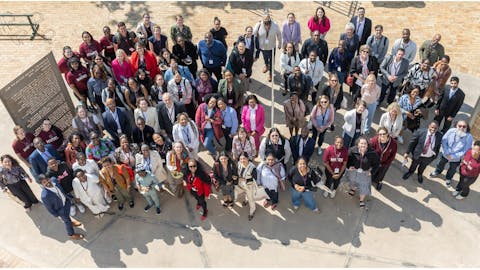Country Factsheets (Africa Region)

Our Country Factsheets provide an in-depth overview of our work across Africa, with a special focus on Kenya, Uganda, and Ethiopia. The factsheets highlight the approaches, project/programme interventions, achievements, results and impact in each in country. They also highlight our partnerships, including both funding and strategic collaborations.

Africa Region Factsheets 2025.
Across Africa, poverty remains widespread, with hunger and malnutrition on the rise due to conflict, climate change, and economic slowdowns. Millions of children are affected—forced into child labour, trafficked for slavery, exposed to hazardous work, and in some cases, recruited into armed conflict or exploited for prostitution, pornography, and other illicit activities.
Children are often abused by both domestic and external actors, including family members, community leaders, state and non-state actors, foreign tourists, and international criminal gangs involved in sex trafficking, child pornography, or even the illegal harvesting and sale of organs.
Governments and institutions across the continent, alongside bodies such as the African Committee of Experts on the Rights and Welfare of the Child, have made significant strides through policy reforms, social services, and stronger legal frameworks. Progress has been seen in addressing child marriage, sexual exploitation, and child labour, but challenges remain immense.
Terre des Hommes Netherlands works with children, families, communities, governments, civil society organisations, media, and the private sector to address the systemic drivers of child exploitation. Our programmes focus on sexual exploitation of children, child labour, humanitarian action, gender equality, strengthening child protection, and ensuring children’s voices are at the centre of decision-making.
In 2024, our projects across Ethiopia, Kenya, Madagascar, Tanzania, and Uganda reached tens of thousands of children and community members. We have influenced policies, strengthened child protection systems, supported girls and young women to engage in continental decision-making spaces, and collaborated with the media to amplify child rights issues.
Our vision is clear: children in Africa can and must flourish in a world free from exploitation.
Ethiopia
With a population of about 126.5 million, Ethiopia is Africa’s second most populous country and one of the fastest-growing economies in the region. Yet it remains one of the poorest, with nearly half the population living in poverty and millions of children facing limited access to essential services.
Children are at particular risk. Ethiopia is home to 31.5 million children under 18, and many of them face exploitation linked to poverty, conflict, unsafe migration, child labour, child marriage, and female genital mutilation. Ongoing conflicts in Amhara and Oromia, climate shocks such as droughts and floods, and recurrent health emergencies continue to deepen humanitarian needs, leaving children vulnerable to violence, displacement, malnutrition, and abuse.
Terre des Hommes Netherlands works across Ethiopia to prevent child exploitation, provide urgent humanitarian assistance, and empower children and young women to make their voices heard. Our programmes address child trafficking, unsafe migration, child labour, sexual exploitation, and gender-based violence, while also promoting education, resilience, and opportunities for girls and young women to participate in decision-making.
We collaborate with local organisations, communities, and government institutions to strengthen child protection systems, influence laws and policies, and ensure children at risk are protected and supported. In 2024, our work in Amhara and Oromia reached thousands of children, families, community members, civil society representatives, and government officials. Girls and young women were supported to engage in leadership spaces, from the Ethiopian Parliament to international forums such as 68th Session of the Commission on the Status of Women (CSW68) in New York.
Kenya.
With a population of about 52.4 million, Kenya is one of East Africa’s largest economies, yet millions of families continue to struggle with poverty and limited access to essential services. Nearly 39 per cent of Kenyans live below the poverty line, and children are among the most affected. Approximately 24.6 million children under the age of 18 face multiple risks, including violence, abuse, and exploitation.
Violence against children remains widespread. Nearly half of all girls and more than half of boys report experiencing some form of violence during childhood. One in six girls is subjected to sexual violence before the age of 18, with most experiencing repeated abuse. Children are also at risk of harmful practices such as child marriage and female genital mutilation, as well as online sexual exploitation, trafficking, and child labour. Three out of ten children in Kenya are engaged in hazardous work that undermines their development and safety. Refugee children and those affected by recurrent droughts face heightened vulnerabilities.
Terre des Hommes Netherlands works across Kenya to prevent child exploitation, strengthen child protection systems, and ensure children’s voices are heard. Our programmes address sexual exploitation, child trafficking, online child sexual exploitation, child labour, and humanitarian child protection, while also promoting education, resilience, and empowerment for girls and young women.
We collaborate with communities, government institutions, civil society, and the private sector to build stronger child protection structures and influence laws and policies. In 2024, our work reached thousands of children, families, community members, and government officials across 12 counties, including Nairobi, Kiambu, Nakuru, Kajiado, Machakos, Kilifi, Mombasa, Kwale, Busia, Kisumu, Homa Bay, and Marsabit. Girls and young women played a central role in advocacy, leading campaigns on online safety, child protection, and gender equality, and participating in decision-making spaces at both national and international levels.
Uganda.
With a population of about 48 million, Uganda is a landlocked country in East Africa with one of the youngest populations in the world. More than half of its citizens are under the age of 18, and many of them face multiple deprivations. Over 56 per cent of children live in multidimensional poverty, lacking access to quality education, healthcare, safe housing, and protection.
Children in Uganda face significant risks of violence, abuse, and exploitation. Approximately 2.5 million are orphans, while millions more are vulnerable to child labour, trafficking, and unsafe migration. Harmful practices such as child marriage, female genital mutilation, and transactional sex expose girls to further exploitation and inequality. Rural children are disproportionately affected, with up to 93 per cent engaged in subsistence or commercial agriculture.
Terre des Hommes Netherlands works across Uganda to prevent child exploitation, strengthen child protection systems, and create safe environments where all children can thrive. Our programmes address sexual exploitation, child trafficking, unsafe migration, child labour, and gender inequality, while also promoting education, resilience, and empowerment for girls and young women.
We collaborate with local communities, government institutions, and civil society to improve laws and policies, build stronger child protection structures, and ensure children’s voices are heard. In 2024, our work reached thousands of children, families, community leaders, and government officials in Kampala, Moroto, Napak, Wakiso, and Bugiri. Girls and young women took leading roles in advocacy, influencing national legislation and participating in decision-making spaces to advance child protection and gender equality





